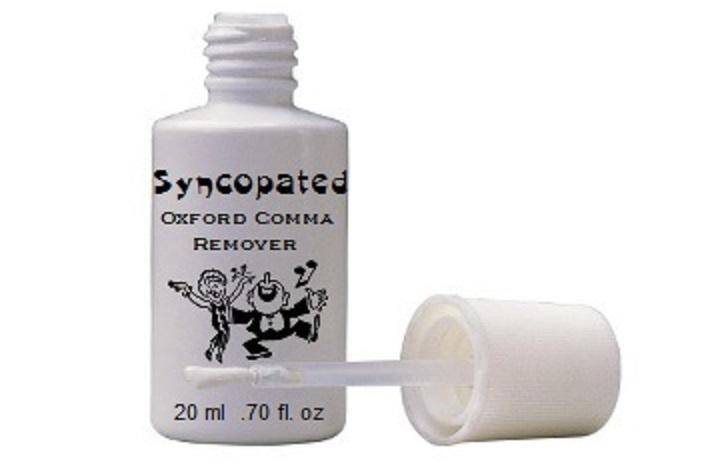There persists a somewhat stereotyped image of The Editor, bolstered by media archetypes Perry White (Superman) and Walter Burns (The Front Page): a cigar-chomping, coffee-swilling bully, bellowing commands to cringing reporters for rewrites. Roughneck Harold Ross seems nearly to approach that model, though if Ben Hecht and Charles MacArthur were here they’d name a dozen of the exact type.
I’m afraid I must disappoint those expecting Hechtian bombast. I have never chomped a cigar in my life. Not only that, my orders always come out sounding more like suggestions. I haven’t quite got the knack of this “authority” business. I can’t convince anyone that my deadline is a real (if arbitrary) thing, like a personal Equator. It’s more like a monthly cliffhanger, as I face my printer’s deadline (which is not arbitrary) with a Syncopated layout: white spaces alternating with articles. The force of my personality is not sufficient. I have a feeling that if I called the fire department I’d be put on hold.
It is with considerable hesitation, therefore, that I approach the issue of style. Demanding that writers submit copy that looks a certain way (in consistency with the rest of the paper) is likely to scare off the reliable contributors who manage to get their work in on time. Vagaries of style, after all, are not mortal sins, and most are easily corrected. It’s just that correcting them gets to be time consuming. So here I will moderate my tone of voice to “suggestion” mode. I am not yelling!
What I need to say is this: I really prefer using what is called the “Oxford comma.” This is in direct contradiction to recommendations in the AP Stylebook, and to what most journalists learned in journalism school. In my view, that extra comma before the word “and” in a series (“corn, beans, and squash”) prevents ambiguity and misunderstanding. The absence of that comma has led to the fall of great fortunes. Most recently, the First Circuit Court of Appeals ruled that the Oakhurst Dairy in Portland, Maine had to fork out an additional five million dollars in overtime pay to its drivers owing to the vagueness occasioned by the omission of that comma in the Maine state law regarding overtime rules.
Though it may lead to considerable out-of-pocket expense, many otherwise excellent and reliable writers eschew and even loathe that comma. Those writers may notice that the Oxford comma magically appears in prose they have submitted to The Syncopated Times. If I were whimsical, I’d tell them that Claude, the Syncopated Comma Elf, had visited their text files with his Big Bag of Commas, sowing them on their pages of hard-wrought prose.
There is no Claude. Nor is there a Johnny Comma-Seed. There is only your commatose editor, mending each series of three or greater in non-AP approved fashion. I deeply regret the annoyance that this may bring to AP-loyal writers and readers offended by the editorial intrusion. Despite our irreconcilable difference of opinion on this matter, I believe we can co-exist. There is no need to go to war over this—or even to unsubscribe from The Syncopated Times. I have a solution, and one that does not involve building a wall between us. It is much cheaper than a partition.
 I have just completed negotiations with a major producer of office supplies, and within a few weeks the first cases of Syncopated Oxford Comma Remover will be ready for distribution. Syncopated Oxford Comma Remover is a gleaming newsprint white, and may be dabbed onto the superfluous mark of punctuation to obscure it from further view. Once the Comma Remover dries, you would swear there was never a comma there, and that The Syncopated Times was in full AP compliance. Then you may read in ease and comfort without further irritation, at least from (to you) unnecessary Oxford commas.
I have just completed negotiations with a major producer of office supplies, and within a few weeks the first cases of Syncopated Oxford Comma Remover will be ready for distribution. Syncopated Oxford Comma Remover is a gleaming newsprint white, and may be dabbed onto the superfluous mark of punctuation to obscure it from further view. Once the Comma Remover dries, you would swear there was never a comma there, and that The Syncopated Times was in full AP compliance. Then you may read in ease and comfort without further irritation, at least from (to you) unnecessary Oxford commas.
Syncopated Oxford Comma Remover may be ordered from the publisher for the nominal sum of $5.95 per bottle, with a charge of $3.00 for shipping and handling. One 20 ml bottle should allow for a full year of comma-free reading. This is peace of mind that you owe yourself, and is cheap at twice the price. Why continue to suffer in silence? Order today!
Andy Senior is the Publisher of The Syncopated Times and on occasion he still gets out a Radiola! podcast for our listening pleasure.




















